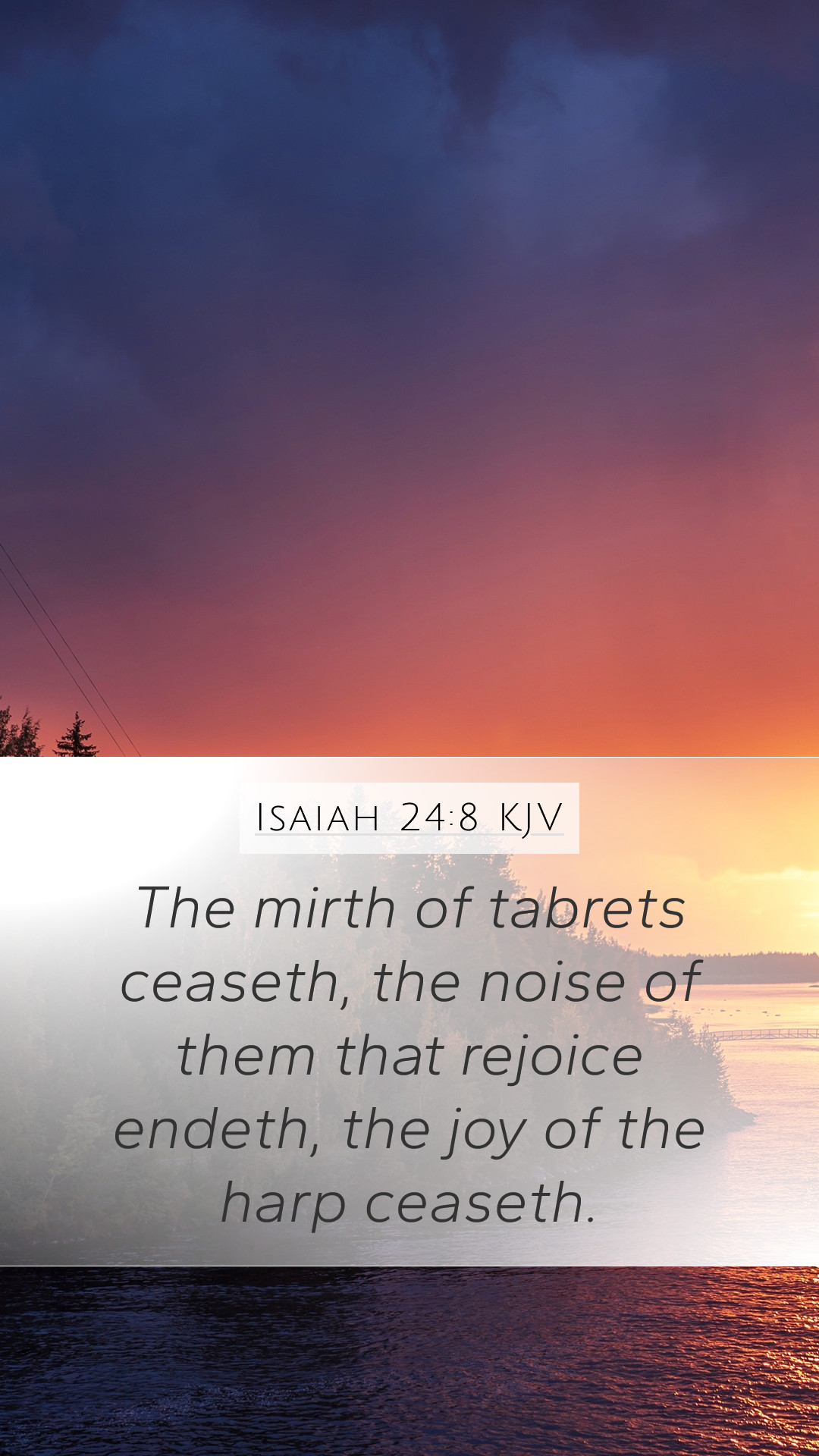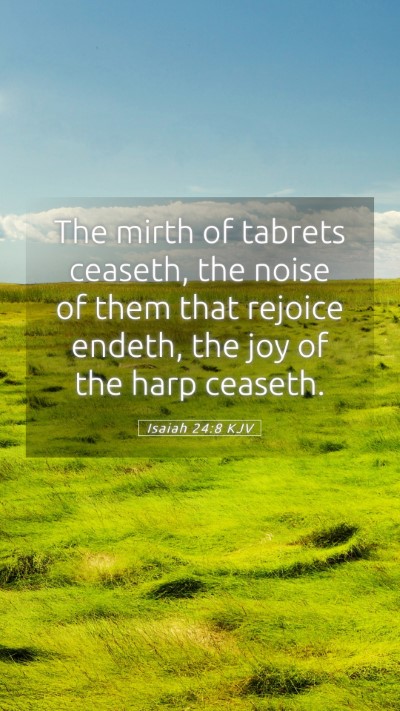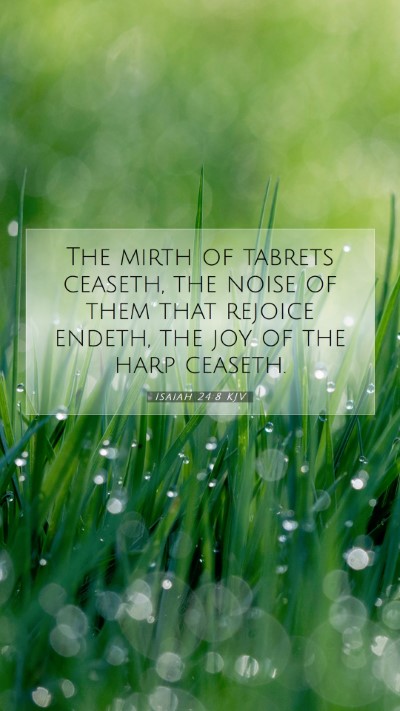Bible Verse: Isaiah 24:8
Verse: "The mirth of tabrets ceaseth, the noise of them that rejoice endeth, the joy of the harp ceaseth." (Isaiah 24:8 KJV)
Summary of Isaiah 24:8
The verse from Isaiah 24:8 serves as a poignant observation on the cessation of joy and celebration. This passage highlights the consequences of sin and judgment that lead to a profound sorrow overshadowing the joys of life. The abandonment of festivities represents both a literal halt to merriment and a more significant spiritual decline that resonates through a community or nation.
Insights from Public Domain Commentaries
Matthew Henry's Commentary
Henry emphasizes the stark contrast between the current state of mourning and the anticipated joy that would prevail in better circumstances. He interprets this verse as a declaration of the judgment impending on the earth due to its iniquity. The symbols of joy, such as music and festival celebrations, reflect the broader desolation affecting the people, illustrating the despondency brought on by divine judgment.
Albert Barnes' Notes
Barnes points out that this verse signifies the overwhelming silence and gloom that ensue when divine wrath is pronounced. The "mirth of tabrets" indicates that festivities linked to joy and celebration have been silenced, which serves as a metaphor for the nation’s spiritual malaise. Furthermore, the cessation of joyous sounds signifies a profound loss, not only of cultural identity but also of faith and hope in the community.
Adam Clarke's Commentary
Clarke expands on the imagery within the verse by stating that the cessation of music and revelry illustrates the dire state of societal decay. He also connects this loss to the broader prophetic narrative of Isaiah, underlining how the displacement of joy symbolizes the absence of divine favor, correlating it with the judgment that leads to catastrophic impacts on the populace. Clarke invites readers to consider the emotional and spiritual ramifications that the lack of joy has on individuals and societies alike.
Interpretative Themes
- Judgment and Its Effects: The cessation of joy serves as an ominous reflection on the consequences of communal sin.
- Social and Spiritual Desolation: The imagery associated with lost celebrations points to a deeper spiritual desolation.
- Prophetic Warning: The passage acts as a warning; it is not merely about loss but serves as a call to repentance and reflection.
Application in Bible Study
This verse invites readers to engage in Bible study insights concerning the themes of loss, judgment, and the need for spiritual renewal. It challenges individuals to reflect on how they respond to divine warnings and to participate actively in community repentance. Group discussions in Bible study groups can illuminate the contrast between man's joy and divine reality, prompting meaningful conversations on how to maintain joy amid societal decline.
Cross References
- Amos 8:10 - "And I will turn your feasts into mourning..."
- Jeremiah 7:34 - "Then will I cause to cease from the cities of Judah, and from the streets of Jerusalem, the voice of mirth..."
- Revelation 18:22 - "And the voice of harpers, and musicians, and of pipers, and trumpeters, shall be heard no more at all in thee..."
Conclusion
Isaiah 24:8 encapsulates the profound consequences of sin as expressed through the cessation of societal joy. Drawing from insights provided by various commentaries, one can see the complex emotional and spiritual layers within this verse. The persistent themes of judgment, loss, and the call for introspection underscore this passage's relevance for those exploring bible verse meanings and seeking understanding Scripture in their bible study courses.


